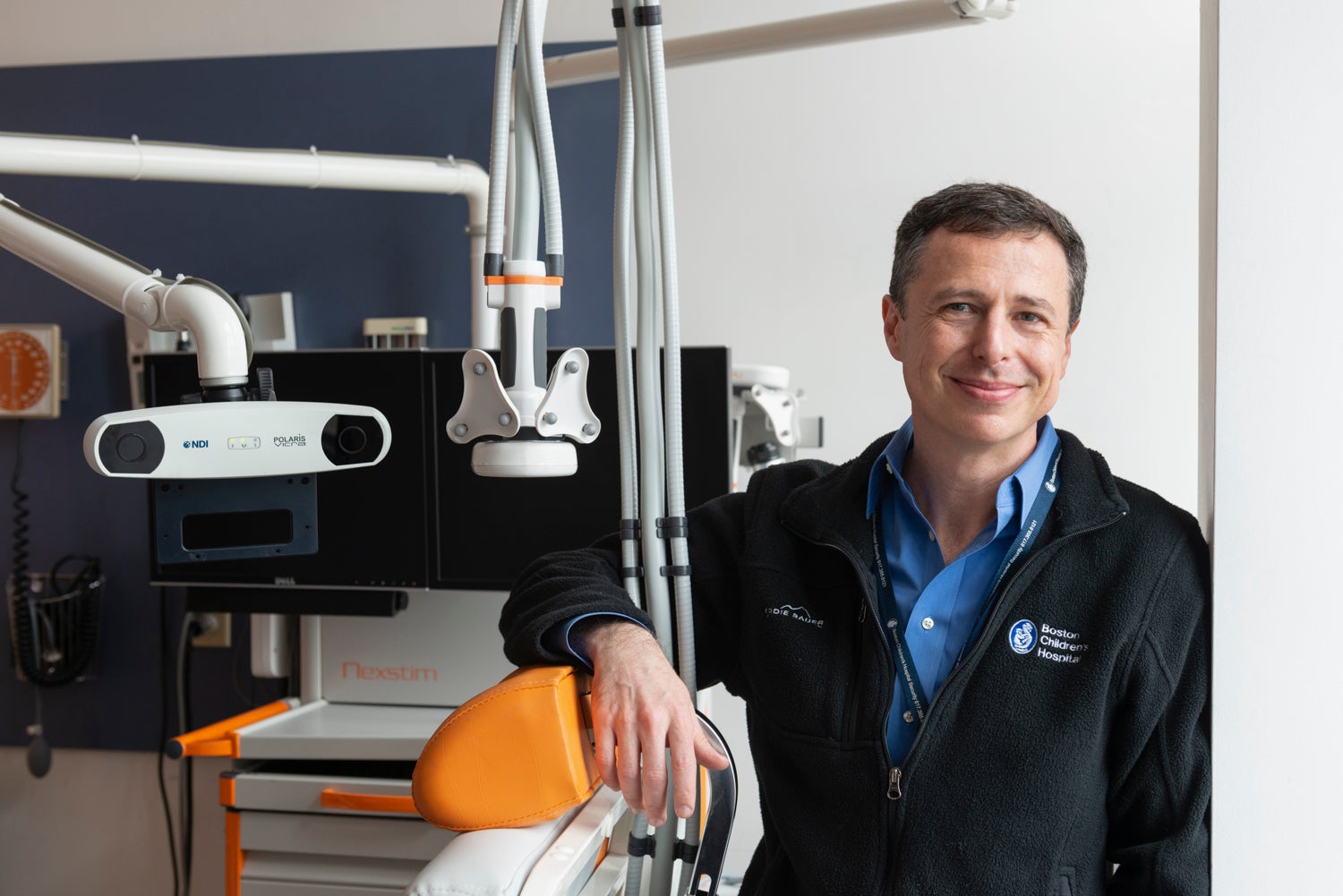Director, Neuromodulation Program, Department of Neurology and Division of Epilepsy and Clinical Neurophysiology, Boston Children's Hospital
Director, Experimental Neurophysiology Core, Kirby Center for Neurobiology

We work to identify biological targets which can stop or prevent seizures if manipulated by either brain stimulation or by novel drugs that we are testing in our lab.We have adapted methods for transcranial magnetic stimulation (TMS) and transcranial direct current stimulation (tDCS) to rodents and to in-vitro brain slice preparations. TMS and tDCS have in common the capacity to safely induce durable changes in neuronal activity. Limited experience with human patients, including those treated at Boston Children’s Hospital, shows that TMS and tDCS have realistic prospects in suppressing seizures. Yet whether these techniques can prevent the onset of epilepsy after various forms of brain injury has not been tested. To characterize the cellular mechanisms by which TMS and tDCS exert their effect, and ultimately to optimize their clinical efficacy, we are testing these techniques in rodent epilepsy models, including models of traumatic brain injury (TBI).
To determine how best to match the cellular changes induced by noninvasive brain stimulation those of brain injury and epilepsy, we are also studying the molecular changes associated with TBI in rats. A second major focus has grown out of this work: testing novel pharmaceutical approaches to prevent brain injury and seizures after TBI, where protocols for noninvasive brain stimulation provide opportunities to identify biomarkers that facilitate drug development. In parallel to our laboratory experiments, we have ongoing clinical projects aimed to further develop techniques for noninvasive brain stimulation, particularly TMS and tDCS, as diagnostic and therapeutic tools in child neurology.
